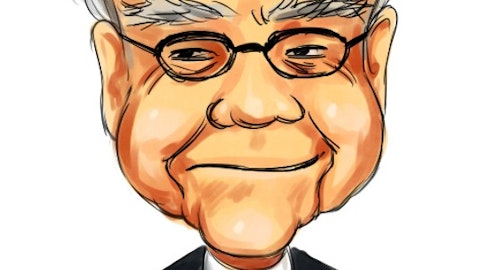One of the most topsy-turvy stocks in the post-recession era has been Yahoo! Inc. (NASDAQ: YHOO), and lately, investors have been losing more than just their lunch. Since the start of 2012, shares of YHOO are down almost 5 percent, and that’s just the start of this proverbial pain train. Two weeks ago, the company’s CEO Scott Thompson was forced to resign amidst a resume-lying scandal; and in the several months before, Yahoo’s Board of Directors lost 5 of 11 members.
In an effort to move forward, the company has released its new “Axis” search engine this week, which displays search results in an innovative heads-up display. Yahoo execs are hoping that this new service will improve advertising revenues, as the success of Facebook (NASDAQ: FB) has severely weakened the company’s once dominant market share in the U.S. online ad space. Interestingly, one insider placed a rather bullish bet on Yahoo the day before “Axis” was released to the public. Yahoo had significant insider sales activity since last fall. This buy broke up a cloud of insider selling activity that had encircled YHOO.
J. Alfred Amoroso: As the Chairman of Yahoo’s Board of Directors, Amoroso has had to deal with a lot of drama in recent months. Since the company has lost such a large amount of key figures this year, it would not be silly to assume that more employees are looking to him as a de-facto voice of reason. On May 22nd, Amoroso made his first purchase of YHOO in over three years, buying 10,000 shares at $15.43 each. This transaction increased the Chairman’s holdings by nearly twofold. Since the purchase, shares are down 1.5 percent, but the bullish effects of insider buying activity typically take a bit longer to shake out.
David Filo: Co-founder of Yahoo David Filo has not been a happy camper in recent months, as his partner Jerry Yang left the company in January. It is speculated that Yang was pressured out, due to concerns that he would be strongly opposed to a merger – something that Yahoo has considered in the past. Filo, meanwhile, has the title of ‘Chief Yahoo’, which sounds like he should be in the Wizard of Oz operating a console of levers and wheels while speaking into a microphone from behind a curtain. Over the past nine months, Filo has sold 2.1 million shares of YHOO for a total value of nearly $30 million. The majority of these transactions have been a result of stock options, though, so they hardly warrant any talk of doom and gloom.
L. Gary Wilson: A Director at Yahoo, Wilson made a rather large sale last fall, shaving almost 70 percent of his holdings. Altogether, this transaction was worth $1.8 million. Since the transaction, Wilson has avoided a near 4 percent loss. Interestingly, this was his first sale since 2009; in this time he has made no purchases of any kind.
Blake Irving and Ross Levinsohn: Around the same time as Wilson’s sale, Chief Product Officer Blake Irving and Executive VP of the Americas region Ross Levinsohn bought a total of 20,000 shares of YHOO worth almost $250,000. Irving is responsible for a substantial reorganization of the Yahoo’s underlying structure, which company execs hope will spur more innovation and creativity. While one phase of this operation is job cuts – it is expected that around one-tenth of the company’s staff may get the ax – this should improve efficiency and operating margins.
Speaking of margins, Yahoo’s (15.6%) are currently below the industry average (17.0%) and competitors like Microsoft (NASDAQ: MSFT) at 38.0 percent, Google (NASDAQ: GOOG) at 32.1 percent, but ahead of IACI/InterActiveCorp (NASDAQ: IACI) at 10.0 percent. Since the recession, Yahoo has been able to grow its EPS by an average of 41.4 percent each year, and earnings multiples show that investors may be under-appreciative. Specifically, YHOO currently trades at a P/E ratio of 17.4X, which is below the industry average of 30.2X and its peers GOOG (21.9X) and IACI (20.5X).
Moreover, the company is currently trading at a P/CF ratio (13.6X) below the industry average (17.0X) even though free cash flow grew by 21 percent last year. Over the past decade, the company’s cash hoard has historically been valued at a 190 percent premium above the S&P’s average. This year, it is valued at just a 49 percent premium. Using the industry average P/CF and a modest year-ahead CFPS forecast of $1.09, we can set a target price of $18.53 by next spring. Even if cash flows stay stagnant, fairly valued shares of YHOO would rise above $18 a share.
Over the next year, Yahoo looks to be a good investment for value investors and insider-mimickers alike. While insider trading activity is not the end-all-be-all form of analysis, it does provide investors with a good starting point. In fact, empirical studies have proven that those who ‘monkey’ the purchases of insiders can beat market averages by 7 percent.






